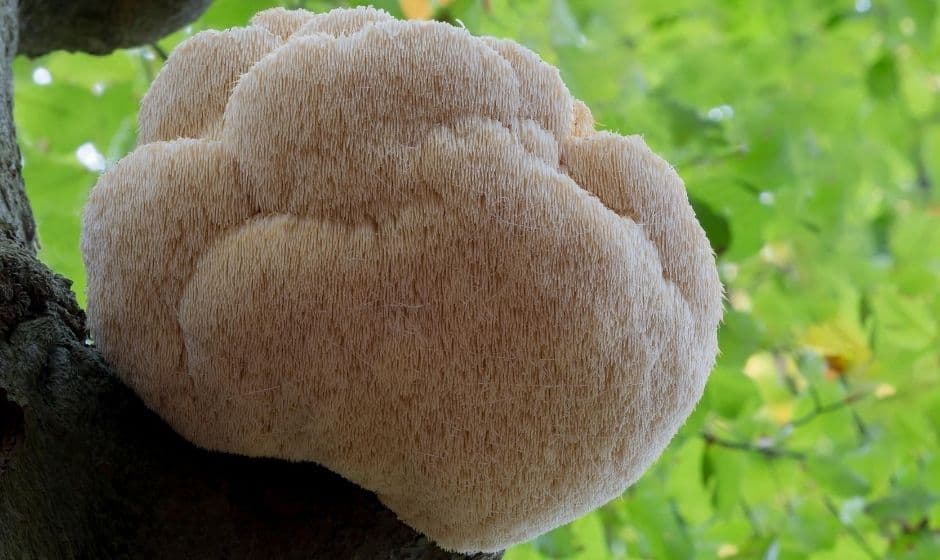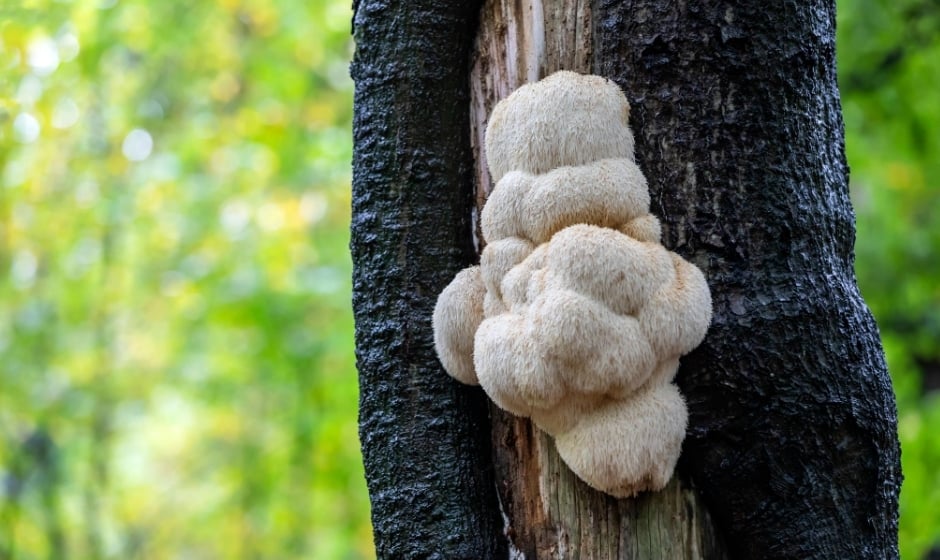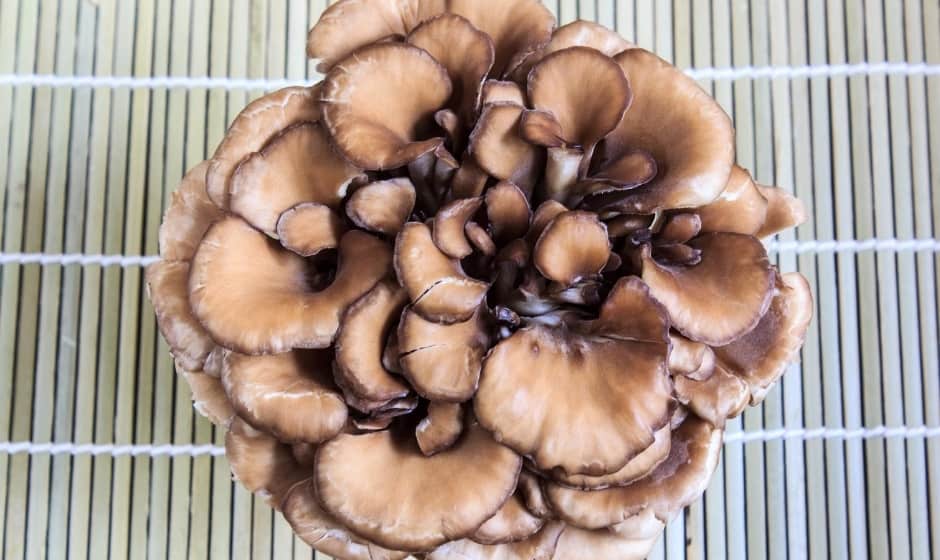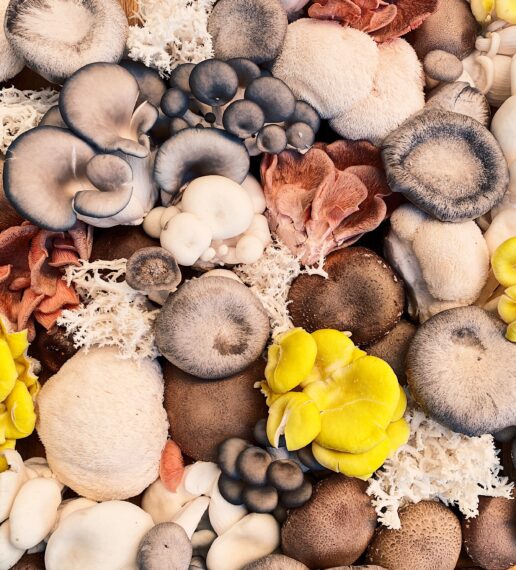Lion’s Mane and Maitake – The Hardest Working Medicinal Mushrooms
Some mushrooms just work a little harder than others…
In this case, the two that come to mind are quite possibly the hardest working mushrooms of all – Lion’s Mane and Maitake.
What makes them so special?
Lion’s Mane and Maitake hold the designation of being both delicious culinary mushrooms AND medicinal powerhouses.
So whether you just want something tasty to add to your meal, or you’re looking to support your overall health with functional mushrooms, Lion’s Mane and Maitake are something you should consider*.
Let’s dive deep into the functional benefits of these amazing mushrooms.
Lion’s Mane
Also known as Hericium erinaceus, Lion’s Mane is a medicinal and culinary mushroom that is exploding in popularity right now.
In fact, if you go to Amazon right now, you’ll see that all the top selling medicinal mushroom products are Lion’s Mane.
Most people use this mushroom for its cognitive benefits, but it’s also sometimes used for gut health, mood boosting, and immune support*.

What Is Lion’s Mane?
Lion’s Mane is not your typical cap and stem mushroom. Instead, it grows in beautiful snowball-like formations, and disperses its spores through elongated “teeth” rather than gills or pores. It resembles the mane of a lion, which is of course how it got its name.
How It Grows
Lion’s Mane is a saprophytic mushroom, meaning it grows on decaying matter. If you find Lion’s Mane in the wild, it is most likely to be growing on a fallen log.
It is easily cultivated on hardwood sawdust or “artificial logs” which makes it widely available for use as a supplement. Even though it is a delicious gourmet mushroom, you are unlikely to find it at the grocery store because of its short shelf life.

Functional Benefits Of Lion’s Mane
Traditionally, Lion’s Mane was used for gut health, gut health, and immune support, but now is more popular for its brain boosting benefits*.
Cognitive Health
Lion’s Mane is known as a nootropic and used to support brain function*. This is because it contains two compounds called hericenones and erinacines which have been shown to promote something called “Nerve Growth Factor*.”
Nerve Growth Factor (often simply NGF) is a compound in our bodies that is responsible for supporting, protecting, and even stimulating the growth of nerve cells*. NGF is a large molecule, too large to cross the blood brain barrier. Hericenones and erinacines, however, are much smaller, and are able to cross over*. [1]
There have been lots of studies done to support the reported cognitive benefits of Lion’s Mane*.
In one study, subjects with mild cognitive impairment were given four 250 mg tablets of Lion’s Mane 3 times per day, and subsequently showed significant improvement in cognitive function*. [2]
In a 2019 study, participants were given cookies containing powdered fruiting body of Lion’s Mane mushroom for a period of 12 weeks. The results showed improvement in cognitive function and prevention of short-term memory deterioration*. [3]
Mood Boosting Effects
Lion’s Mane has also been used for reducing stress and improving mood*.
One study showed Lion’s Mane has the possibility to reduce depression and anxiety*. [4]
Gut Health
Helicobacter pylori is known to be a main cause of gastric ulcers and chronic gastritis*. Lion’s Mane was shown to be active against 9 clinical strains of H pylori with a 0.02% concentration having 50% bactericidal activity*. [5]
Maitake
Maitake, also known as Griola frondosa, doesn’t quite get the attention it deserves. In ancient Japan, it was known as the “dancing” mushroom” because people who found it in the forest would dance with joy at their discovery.
As a gourmet mushroom, it is top of its class, adding irresistible “umami” flavor to any dish. It is also a powerful medicinal mushroom full of bio-active polysaccharides that can support our immune system*.

How It Grows
Maitake is a polypore mushroom, meaning it has “pores” under the cap instead of gills. It grows at the base of trees in beautiful formations of overlapping fronds.
Maitake is also known as “hen of the woods” and is a popular wild-harvested mushroom in the United States.
Maitake is a little more difficult to cultivate than other gourmet and medicinal varieties, but with the right techniques and conditions, it can be done at scale.
Functional Benefits of Maitake
Maitake is a powerful immune system modulator, containing bio-active protein bound polysaccharides*. One of these polysaccharides, known as Maitake D-fraction has been extensively studied for its potential to alleviate the side effects of chemotherapy*. [6]
Immune Support
Maitake contains one of the highest amounts of immune supporting beta-d glucans of any mushroom at 35%*.
Blood Sugar Support
Studies have shown that Maitake mushrooms may have anti-diabetic properties*.
One study showed Maitake extract was able to produce a significant reduction in blood sugar levels in 20 type 2 diabetes patients*. [7]
PCOS
Polycystic Ovarian Syndrome is associated with insulin resistance in the majority of cases*. Maitake polysaccharides have shown promise in helping to address this condition*.
In one study, ovulation was observed in 20 of 26 women given maitake extract, and 6 of 8 women who failed to ovulate after being treated with Clomiphene citrate (which is used for treating infertility) did so after being given maitake*. All three women in the study that expressed an interest in becoming pregnant were able to do so*. [8]


